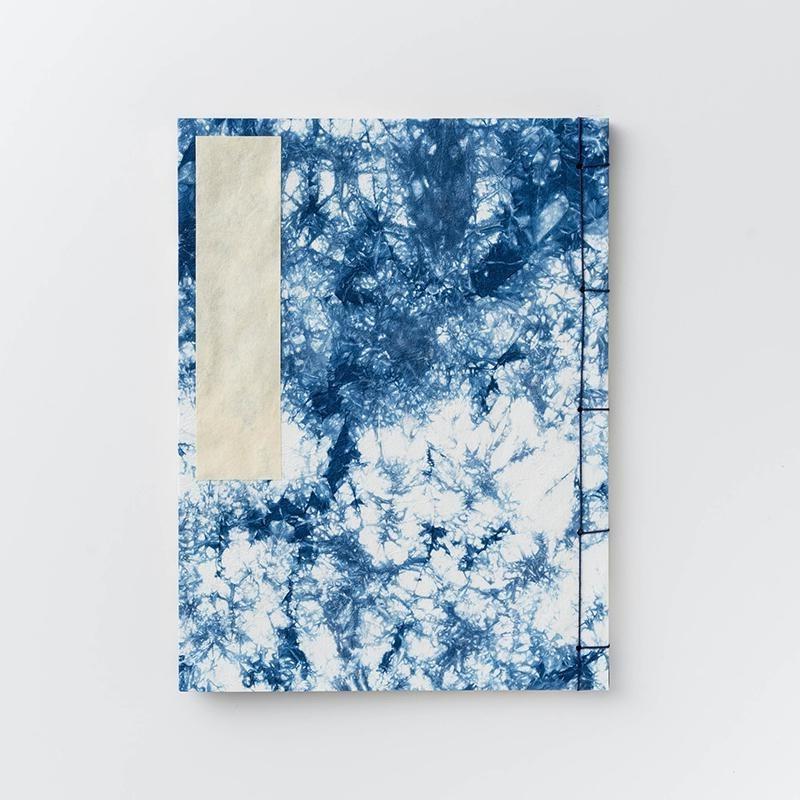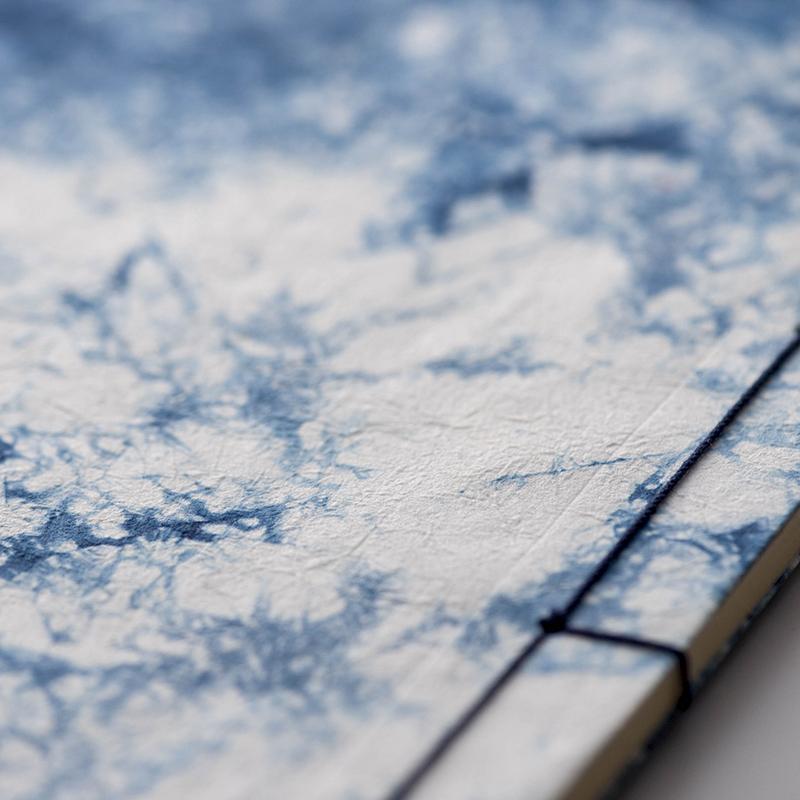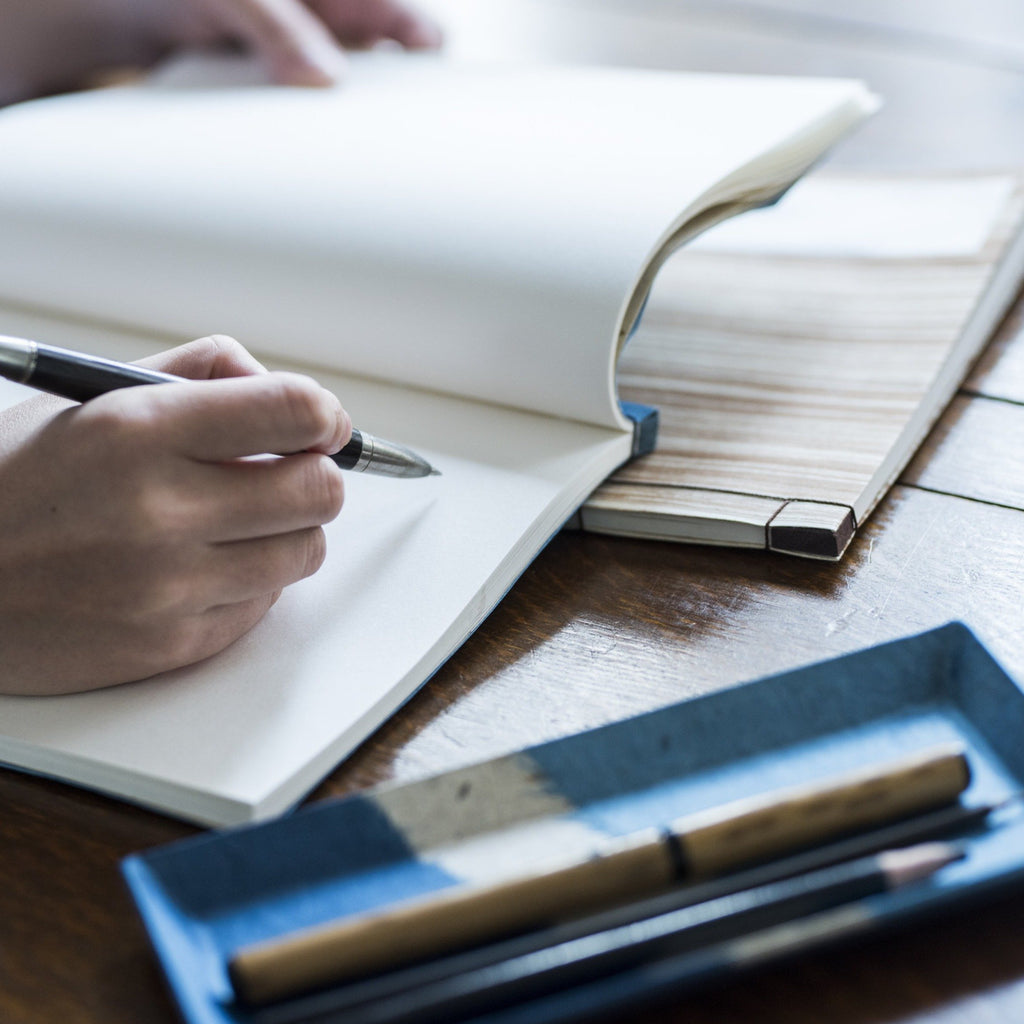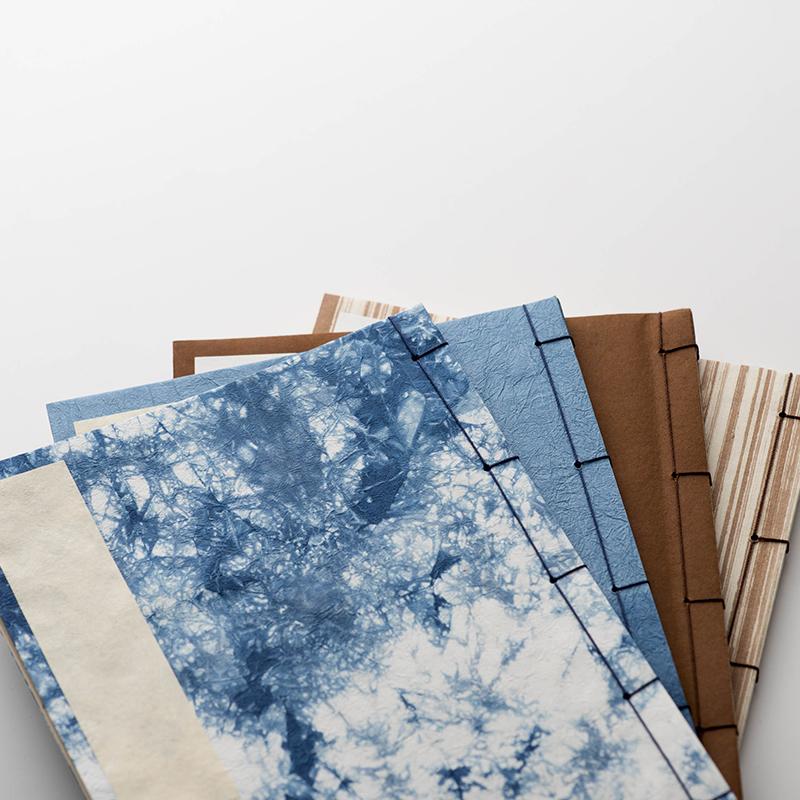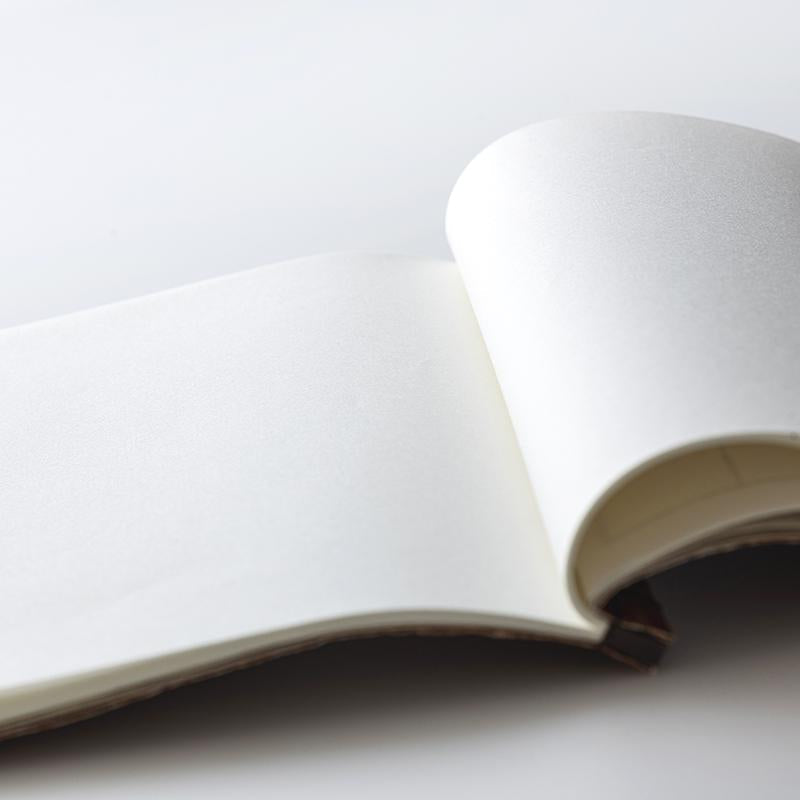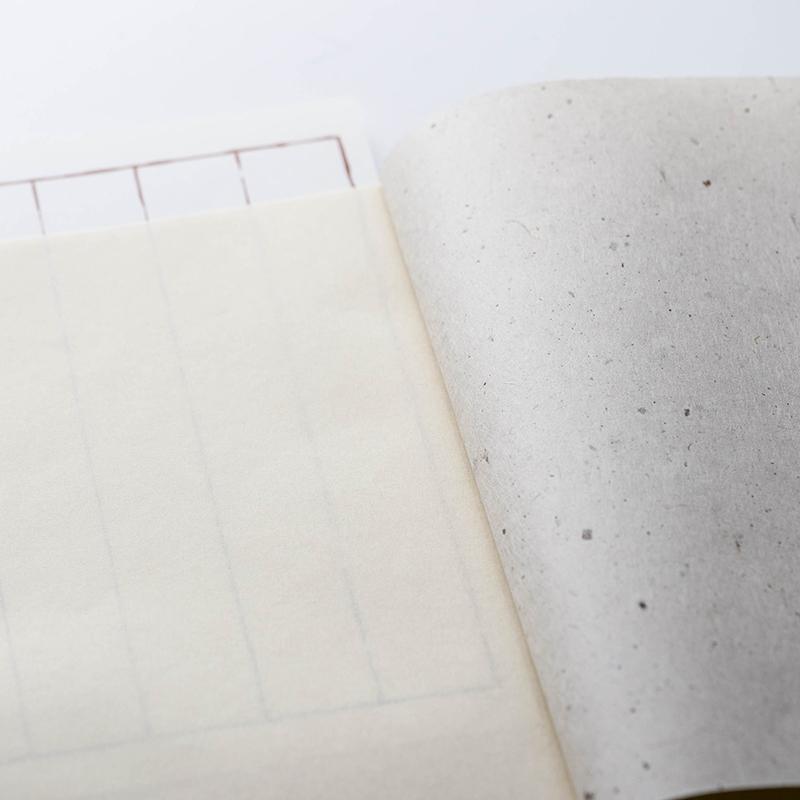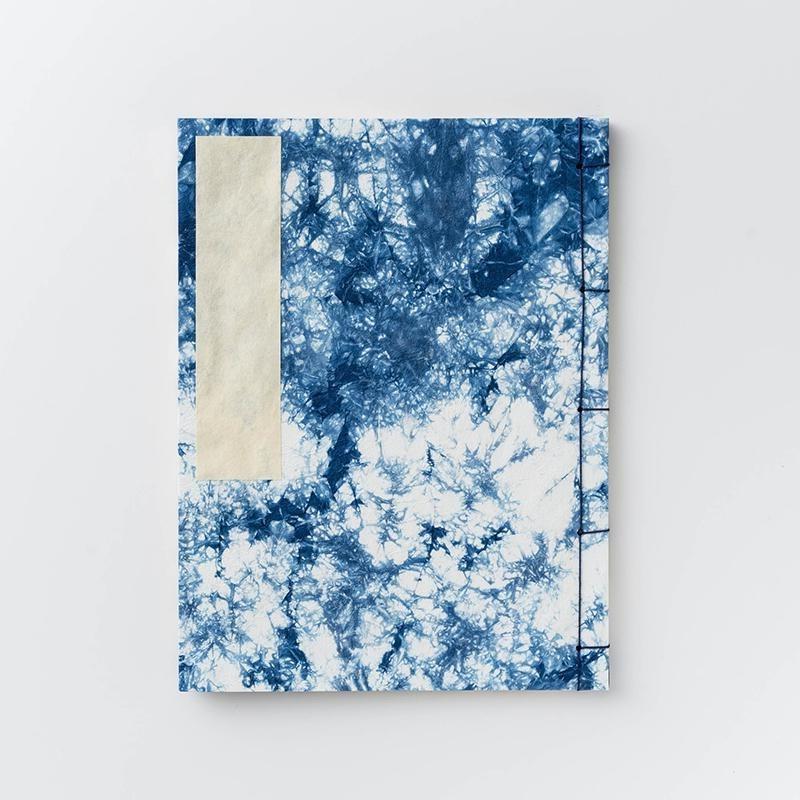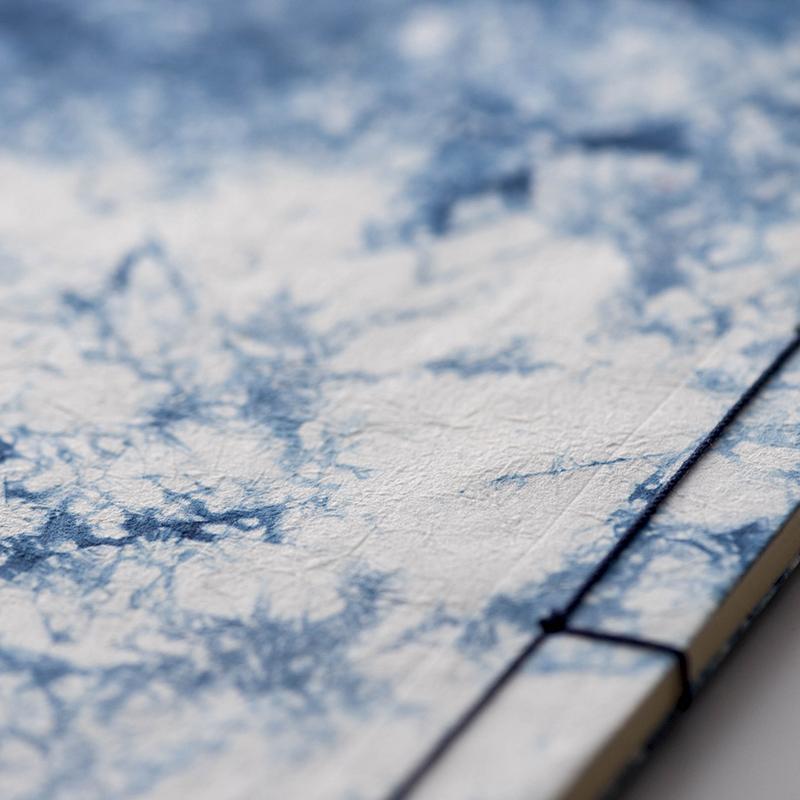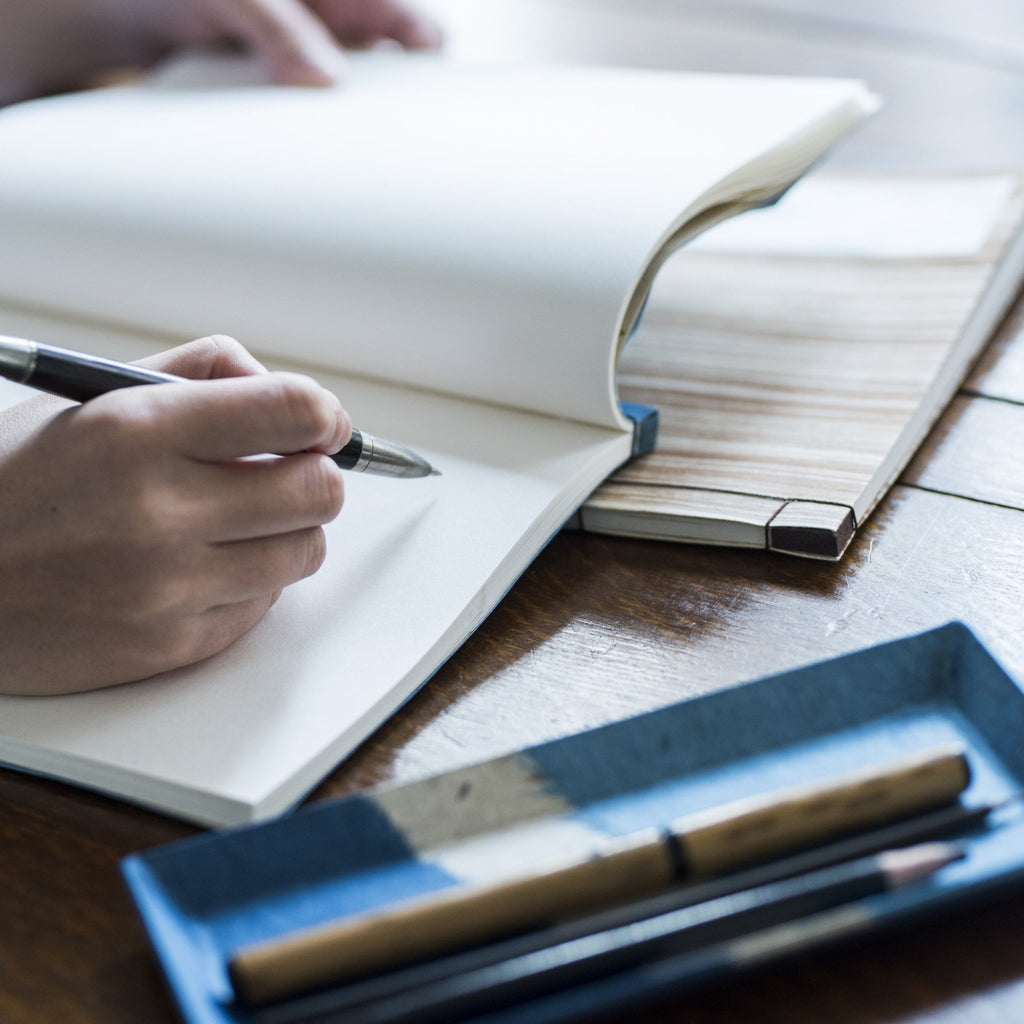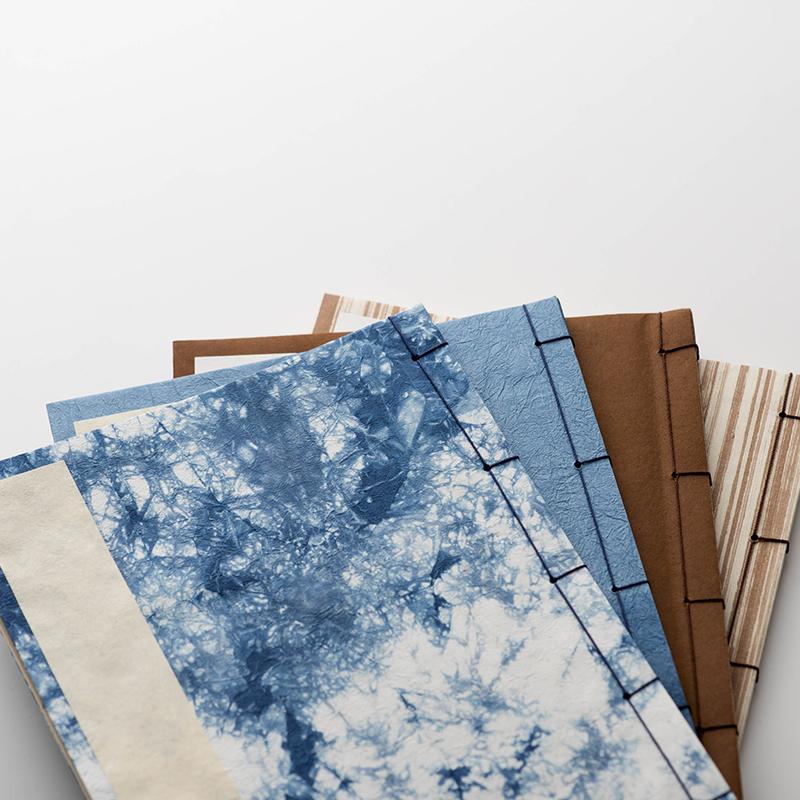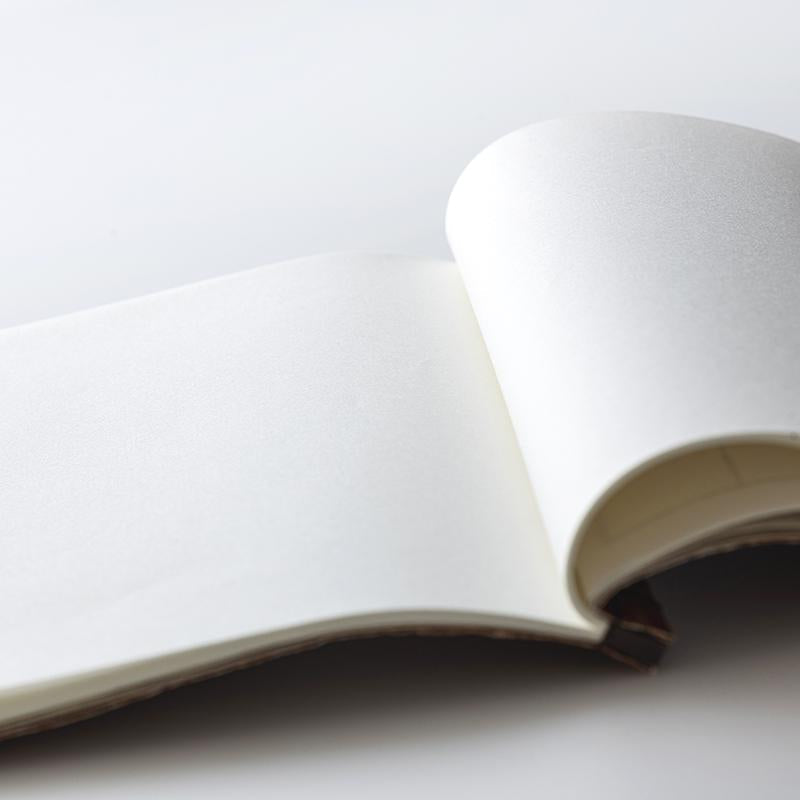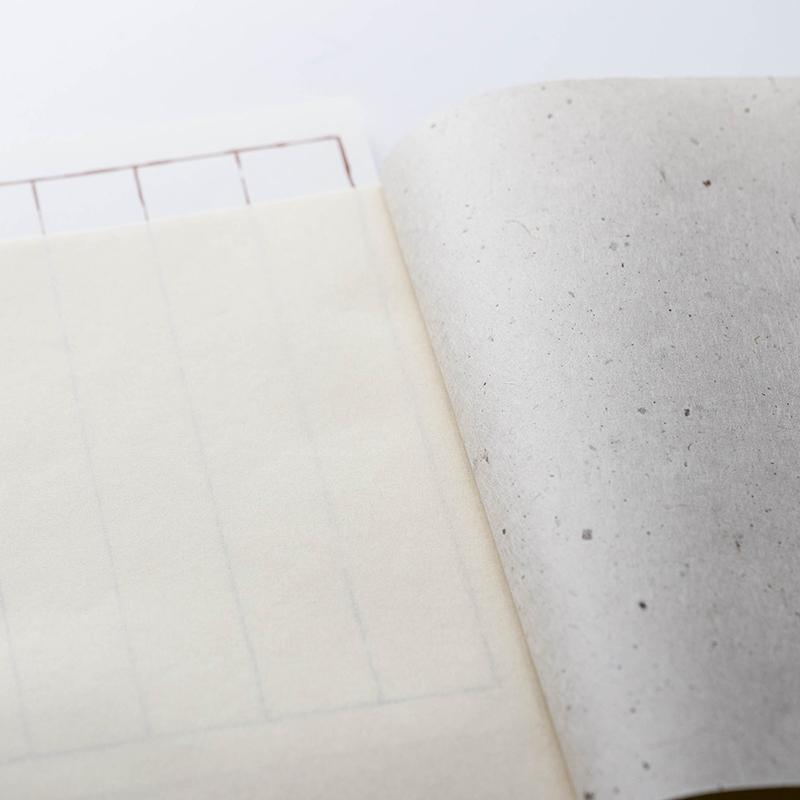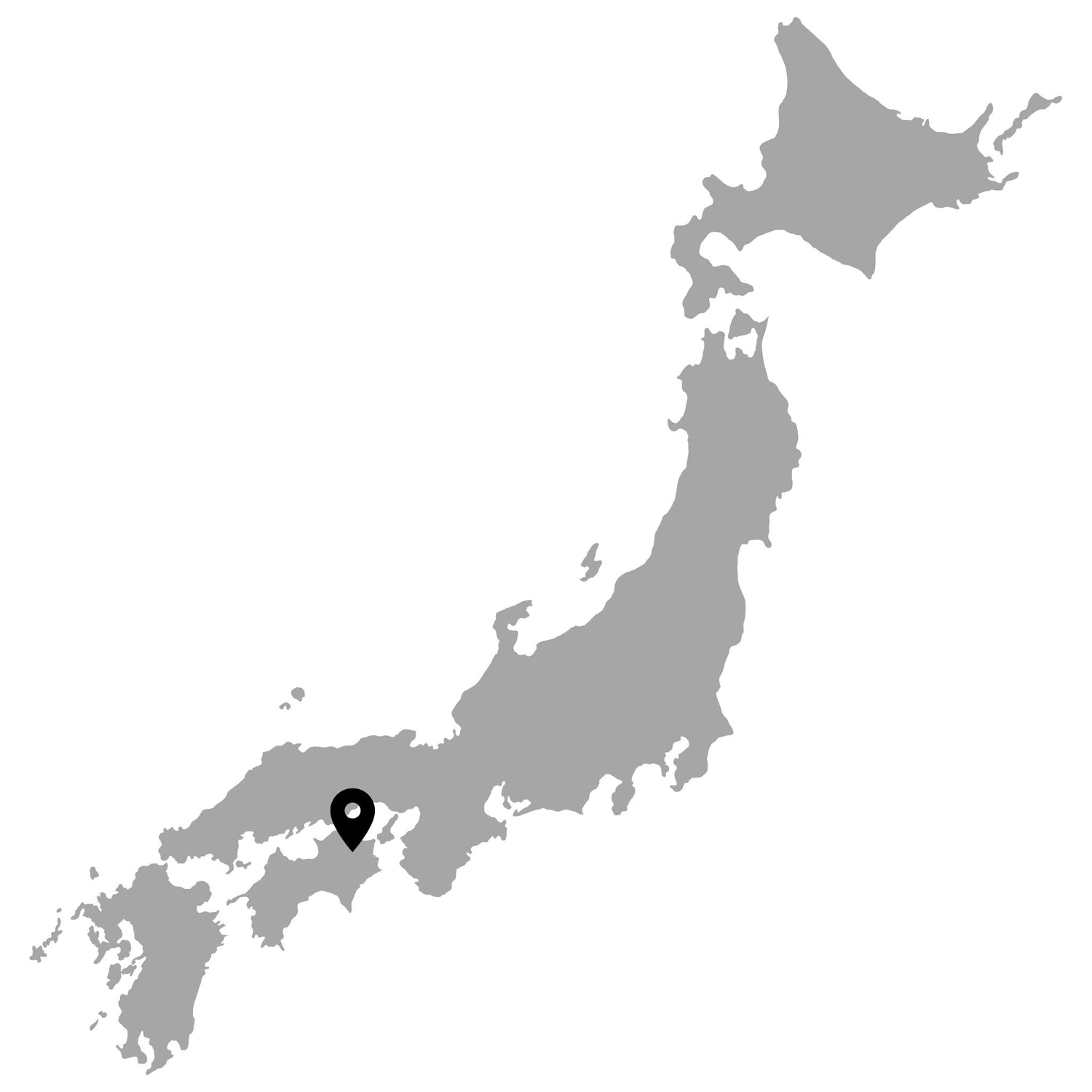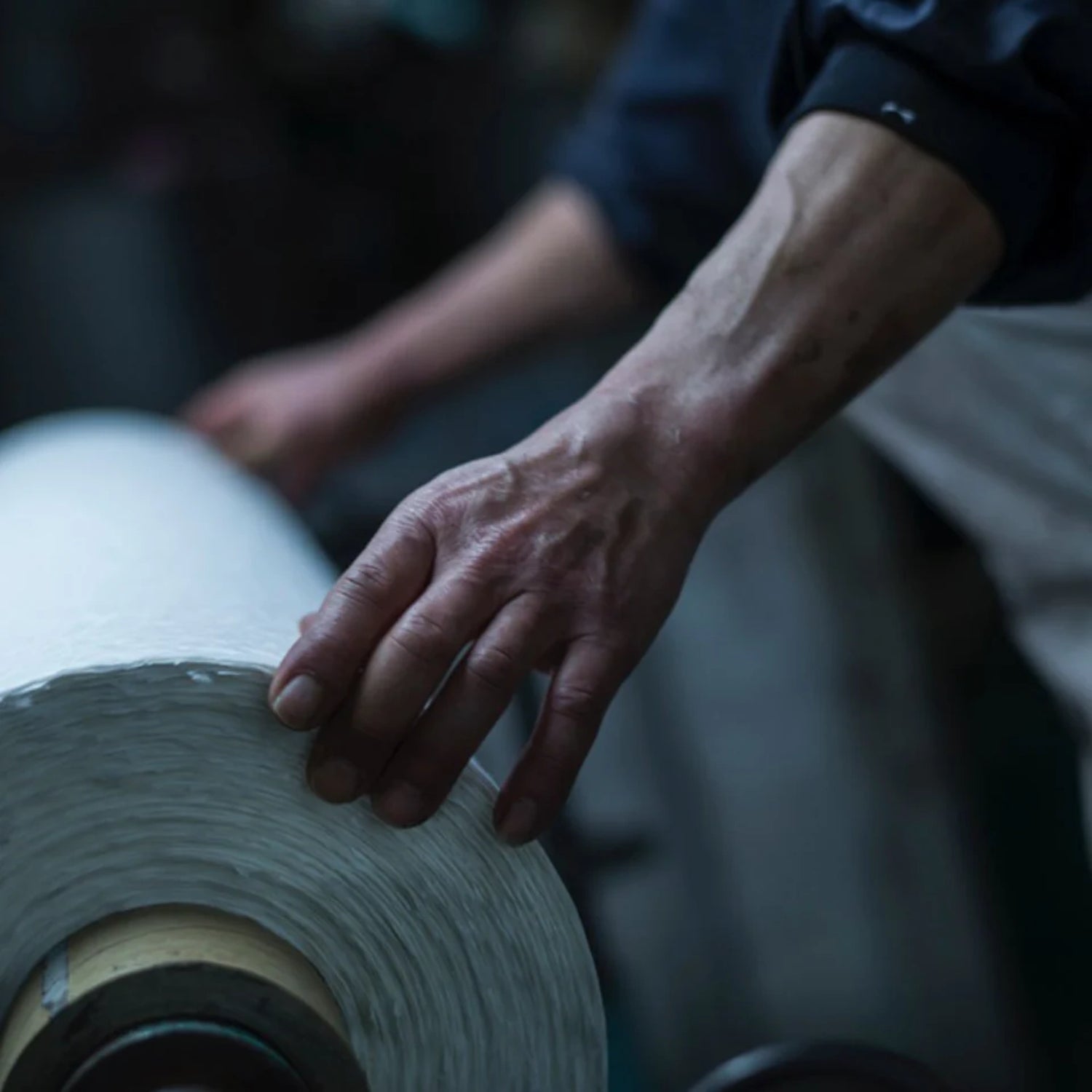Indigo Fade Washi Notebook
Indigo Fade Washi Notebook
Couldn't load pickup availability
A study in natural contrast and quiet intensity, this Indigo Fade Washi Notebook by Awagami Factory captures the unpredictable beauty of hand-dyed paper. Each cover is crafted from washi individually dyed using Tokushima-grown indigo—Japan’s famed "Japan Blue"—resulting in an expressive, branching pattern that evokes ink dispersing through water or frost blooming on glass.
Bound using traditional watoji stitching, the notebook features folded shirakaba washi pages ideal for fountain pens, water-based ink, or brush writing. There’s a subtle softness and absorbency to the paper that enhances the tactile experience of every word or sketch.
More than a notebook, it is a canvas of living indigo—designed to change gradually with time and light, just as all things in nature do.
Detail
Detail
Care & Use
Care & Use
- Check our tips for care & use.
